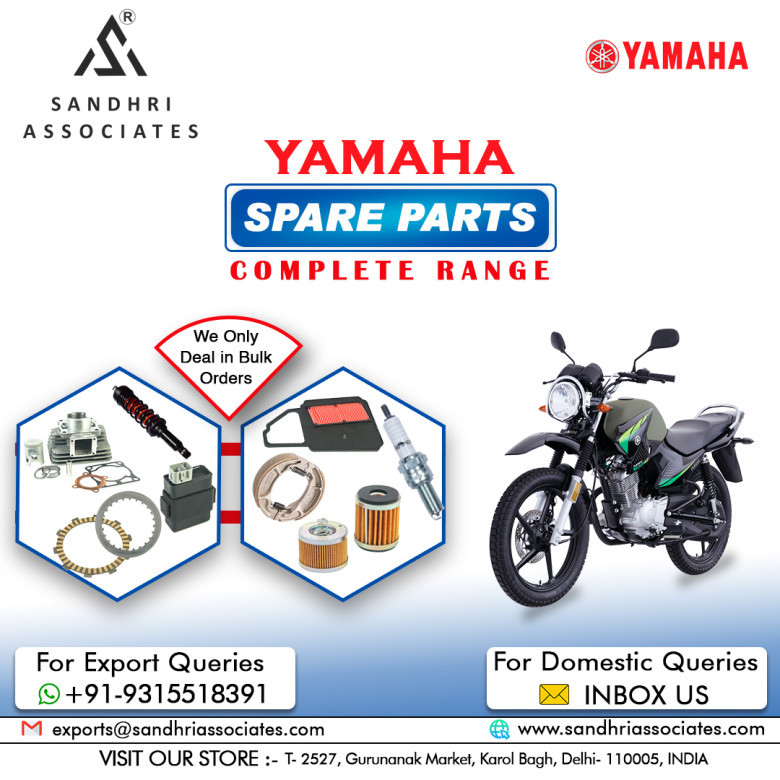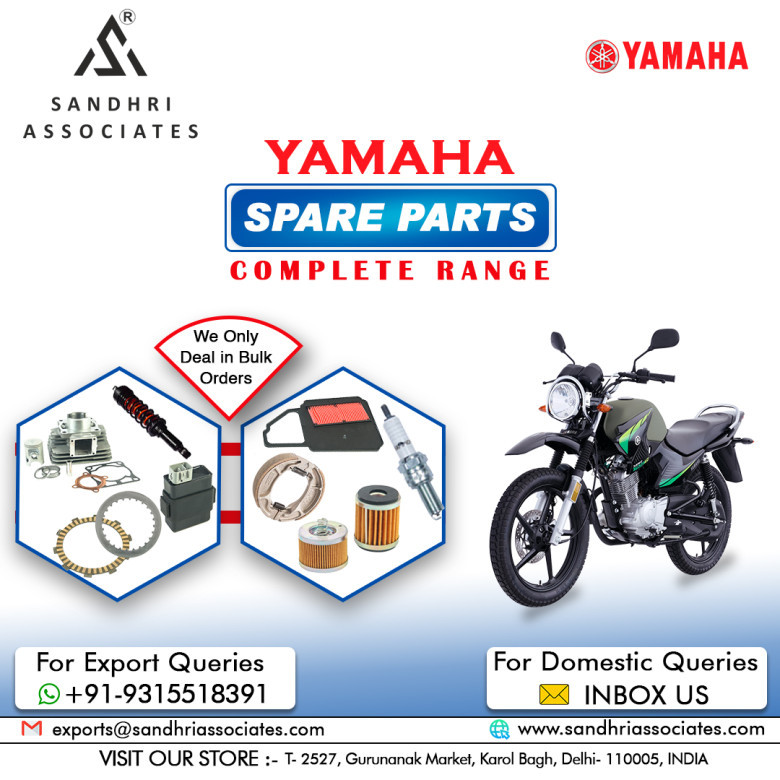views
Where to Find Reliable Yamaha Autoparts Suppliers
Introduction
For Automotive professionals, enthusiasts, and businesses, sourcing Genuine Yamaha Autoparts is critical to ensuring vehicle performance, safety, and longevity. However, locating reliable suppliers in a market flooded with counterfeit products and inconsistent quality can be challenging. This guide explores actionable strategies to identify trustworthy Yamaha Autoparts suppliers, highlights industry trends, and addresses common pain points—equipping you with the knowledge to make informed decisions.
The Challenges of Sourcing Yamaha Autoparts
-
Counterfeit Parts Proliferation
The global counterfeit auto parts market is estimated to cost the industry over $12 billion annually, with Yamaha components being a frequent target. Fake parts compromise safety, void warranties, and lead to costly repairs. -
Supply Chain Complexity
Post-pandemic disruptions and fluctuating demand have made inventory management inconsistent. Suppliers without robust networks struggle to deliver parts promptly. -
OEM vs. Aftermarket Confusion
While aftermarket parts are cheaper, Original Equipment Manufacturer (OEM) components guarantee compatibility and quality. Identifying suppliers that specialize in genuine Yamaha parts requires diligence. -
Lack of Transparency
Many suppliers omit details about part origins or certifications, making it hard to verify authenticity.
Key Trends Shaping the Yamaha Autoparts Industry
-
E-Commerce Growth
Online platforms now account for 35% of auto parts sales, offering convenience but requiring buyers to vet suppliers carefully. -
Demand for Sustainability
Suppliers are increasingly adopting eco-friendly practices, such as recycling programs for used parts, aligning with Yamaha’s global sustainability goals. -
Rise of Authorized Partnerships
Yamaha has expanded its network of authorized dealers and distributors to combat counterfeiting, ensuring traceability via digital verification tools.
How Industry Leaders Are Addressing These Challenges
Leading suppliers and service providers prioritize transparency, quality assurance, and customer education. For instance:
-
Certification Checks: Authorized suppliers provide Yamaha-issued certifications and serial numbers for traceability.
-
Digital Verification Tools: Platforms now integrate QR codes or blockchain technology to authenticate parts.
-
Streamlined Logistics: Reliable partners maintain regional warehouses to reduce delivery times and costs.
Companies like Sandhri Associates exemplify this approach by collaborating with Yamaha-certified manufacturers, conducting rigorous quality audits, and offering end-to-end supply chain solutions. Their focus on educating clients about part authentication and OEM benefits helps businesses navigate the complexities of sourcing.
5 Actionable Tips to Find Reliable Yamaha Autoparts Suppliers
-
Verify Authorized Partnerships
Cross-check suppliers against Yamaha’s official distributor list. Authorized partners undergo strict vetting and adhere to brand standards. -
Prioritize Certifications
Look for ISO 9001 (quality management) or Yamaha-specific certifications. Genuine suppliers will readily share documentation. -
Leverage Online Reviews & Industry Networks
Platforms like Alibaba, ThomasNet, or automotive forums provide insights into supplier reliability. Seek peer recommendations from industry associations. -
Request Samples
Test a small batch of parts for quality, packaging, and labeling before committing to bulk orders. -
Evaluate Logistics Capabilities
Ensure suppliers have regional warehouses or partnerships to avoid delays. Inquire about return policies for defective items.
Conclusion
Navigating the Yamaha Autoparts market requires a blend of research, due diligence, and collaboration with trusted partners. By prioritizing certifications, leveraging technology, and understanding industry trends, businesses can mitigate risks and secure high-quality components.
For those seeking further guidance, Sandhri Associates offers expertise in connecting clients with vetted Yamaha suppliers, combining decades of industry knowledge with a commitment to transparency. Explore their resources to streamline your sourcing strategy and stay ahead in a competitive market.
FAQs
Q1: How can I distinguish genuine Yamaha parts from counterfeits?
A: Genuine parts feature Yamaha logos, holographic stickers, and unique serial numbers. Verify them using Yamaha’s online tools or authorized dealer networks.
Q2: Are aftermarket Yamaha parts a viable alternative?
A: While cost-effective, aftermarket parts may lack OEM compatibility. For critical components like engine parts, always opt for OEM-certified suppliers.
Q3: What certifications should a reliable supplier have?
A: Look for Yamaha-authorized dealer certification, ISO 9001, or membership in automotive industry associations like ASA (Automotive Service Association).
Q4: How do global supply chain issues impact part availability?
A: Established suppliers mitigate delays through diversified warehouses and inventory forecasting. Always inquire about stock levels before ordering.
Q5: Can Sandhri Associates assist with custom orders?
A: Yes, specialized providers like Sandhri Associates often facilitate custom or bulk orders through their network of certified manufacturers.





















Comments
0 comment